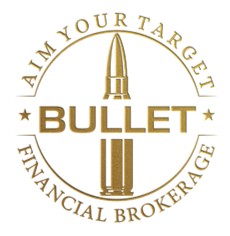Retail banking products are financial services that banks offer to individual consumers rather than businesses or institutions. Some of the most common retail banking products are:
Current accounts:
Accounts current are a type of bank account that can be used for everyday transactions such as paying bills or receiving your salary. They typically don’t earn interest, but they may offer perks such as fee-free transactions or cashback. Typically, you can withdraw money from them at an ATM or in person at a bank branch. Some may require a minimum balance or charge fees if you dip below it. They are convenient for people who need frequent access to their money and want to keep it separate from savings. It’s important to compare the fees and features of different accounts current before selecting one.
Customers can use checking accounts to make deposits and withdrawals, pay bills, and make purchases with debit cards. With low or no fees, accessing funds is easy.
Savings accounts:
These help customers save money and earn interest on their deposits. Savings accounts usually have higher interest rates than checking accounts but may have minimum balance requirements or withdrawal limits.
Credit cards:
Cards for credit purchases are an accessible and convenient means of payment for individuals who qualify for them. Used wisely, they can help establish and improve one’s credit score, which, in turn, may lead to increased financial opportunities down the line.
As such, it is essential to read and understand credit card agreements and terms, as well as to make timely payments and keep balances within manageable limits.
Usually, with interest, credit cards offer customers the option to purchase goods and services on credit and pay them back at a later time. With the ability to earn rewards, gain fraud protection, and establish credit history, credit cards provide a plethora of benefits.
Mortgages:
To purchase or refinance a domicile, individuals use these types of loans.
Other loans have higher interest rates than mortgages, which can have a lengthy repayment term of up to 25 years. In return for a lower interest rate, a mortgage necessitates a down payment and collateral, which is usually the home itself.
Personal loans:
Loans of a personal nature, whether for large projects or emergency situations, can provide a helpful financial lifeline during difficult times. Options for personal loans range from traditional banks, with varying interest rates and repayment terms. It is important to carefully research and compare different lenders before committing to a loan, and to only borrow what is necessary and within your means to repay. Personal loans can be a useful tool for achieving financial goals. For things like education, home improvement, medical expenses, and consolidating debt, customers take out these loans. Unlike credit cards or mortgages, these loans have fixed interest rates and repayment schedules.
Certificates of deposit (CDs):
It fixed-term investment typically offered by banks. CDs tend to offer higher interest rates than traditional savings accounts. The length of a CD’s term can range from a few months to several years, and the interest rate is typically higher for longer-term CDs. Despite the lack of flexibility, CDs can be a good option for those looking to earn a guaranteed return on their savings.
From a few months to several years, customers invest in savings products that offer a guaranteed interest rate for a fixed term. These products, called CDs, provide higher interest rates compared to savings accounts.



